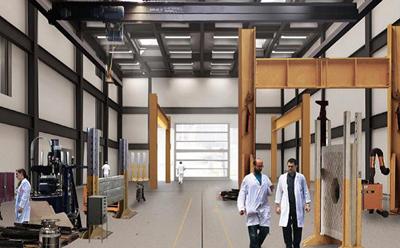Research programme launched to overhaul UK’s cities and infrastructure

The University of Southampton will play a key role in a major national research programme aimed at making the UK’s cities and infrastructure fit for the future.
Formally launched this week, the UK Collaboratorium for Research on Infrastructure and Cities (UKCRIC) will be established at 14 UK universities to conduct world-leading research through a network of state-of-the-art facilities and urban laboratories.
The collaborative project, first announced in the 2015 Budget, will see a £216.6m investment – including £125m from the Engineering and Physical Sciences Research Council (EPSRC) – in new facilities.
These will include a co-ordinated set of National Laboratories, one of which is the National Infrastructure Laboratory, currently currently under construction at the University of Southampton’s Boldrewood Innovation Campus.
This laboratory will focus on transport infrastructure, predominantly rail, providing a greater understanding of the soil-structure-vehicle interactions of trackway systems and innovative structures that will drive the intelligent design, improvement and management of linear infrastructure systems.
The aim is to present a higher value, lower cost, reliable and safe transport for people and freight. This is particularly needed in the context of increasing demands placed on urban systems and more extreme events.
Professor William Powrie, Dean of Engineering and the Environment, said: “UKCRIC brings together most of the UK’s leading universities in infrastructure and cities research. With three strands covering laboratories, observatories or living cities, and simulation, it gives the UK a unique and world-leading opportunity to transcend traditional disciplines to carry out the research needed to ensure that the world’s cities are great places to live and work, and that the infrastructure which joins and supports them is adaptable, resilient and affordable.
“That the University of Southampton is playing a key role is a testament to our work, particularly in the areas of rail infrastructure, transport, energy in the built environment and sustainable waste management over the past two decades and more.”